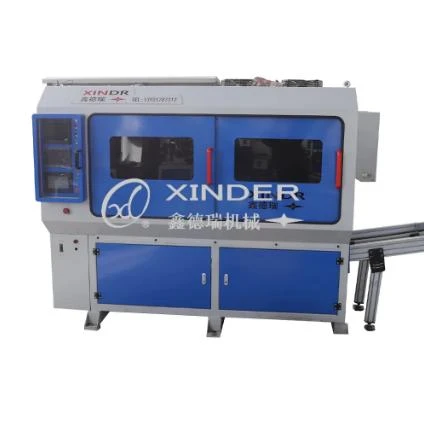-
 8613931787312
8613931787312 -
 Botou Industrial Zone on the east side of National Highway 104, Botou City, Hebei Province
Botou Industrial Zone on the east side of National Highway 104, Botou City, Hebei Province
- Afrikaans
- Albanian
- Amharic
- Arabic
- Armenian
- Azerbaijani
- Basque
- Belarusian
- Bengali
- Bosnian
- Bulgarian
- Catalan
- Cebuano
- Corsican
- Croatian
- Czech
- Danish
- Dutch
- English
- Esperanto
- Estonian
- Finnish
- French
- Frisian
- Galician
- Georgian
- German
- Greek
- Gujarati
- haitian_creole
- hausa
- hawaiian
- Hebrew
- Hindi
- Miao
- Hungarian
- Icelandic
- igbo
- Indonesian
- irish
- Italian
- Japanese
- Javanese
- Kannada
- kazakh
- Khmer
- Rwandese
- Korean
- Kurdish
- Kyrgyz
- Lao
- Latin
- Latvian
- Lithuanian
- Luxembourgish
- Macedonian
- Malgashi
- Malay
- Malayalam
- Maltese
- Maori
- Marathi
- Mongolian
- Myanmar
- Nepali
- Norwegian
- Norwegian
- Occitan
- Pashto
- Persian
- Polish
- Portuguese
- Punjabi
- Romanian
- Russian
- Samoan
- scottish-gaelic
- Serbian
- Sesotho
- Shona
- Sindhi
- Sinhala
- Slovak
- Slovenian
- Somali
- Spanish
- Sundanese
- Swahili
- Swedish
- Tagalog
- Tajik
- Tamil
- Tatar
- Telugu
- Thai
- Turkish
- Turkmen
- Ukrainian
- Urdu
- Uighur
- Uzbek
- Vietnamese
- Welsh
- Bantu
- Yiddish
- Yoruba
- Zulu
cnc profile bending machine
Understanding CNC Profile Bending Machines An Overview
In the world of manufacturing and metalworking, precision and efficiency are paramount. One essential tool that has revolutionized the bending process is the CNC profile bending machine. These advanced machines enable manufacturers to create intricate shapes and bends in metal profiles with exceptional accuracy and speed. This article will explore the features, benefits, and applications of CNC profile bending machines.
What is a CNC Profile Bending Machine?
A CNC (Computer Numerical Control) profile bending machine is a sophisticated piece of equipment designed to bend metal profiles into specified shapes and angles. Unlike traditional bending machines, CNC machines are controlled by computer programs, which allows for greater consistency and precision in the bending process. These machines can handle a variety of materials, including mild steel, stainless steel, aluminum, and other alloys.
Key Features
CNC profile bending machines come equipped with several key features that enhance their functionality
1. Programmable Controls The heart of any CNC machine is its control software. Operators can input specifications for various bends and shapes, and the machine will execute these commands with high accuracy.
2. Multiple Bending Stations Many CNC profile bending machines are designed with multiple bending stations, allowing for complex geometries to be produced in a single pass. This saves time and increases productivity.
3. Versatile Tooling CNC machines can be customized with different tooling to accommodate various profile sizes and shapes. This versatility makes them suitable for diverse applications in multiple industries.
4. Automatic Calibration These machines often come with automatic calibration features that ensure the equipment maintains precise settings, reducing the chances of human error.
Benefits of CNC Profile Bending Machines
cnc profile bending machine

The adoption of CNC profile bending machines offers several compelling advantages
1. Enhanced Precision CNC technology enables incredibly precise bends, ensuring that products meet strict tolerances. This precision is crucial in industries such as automotive and aerospace, where even minor deviations can lead to performance issues.
2. Increased Efficiency With the ability to operate automatically, CNC bending machines reduce the need for manual intervention, leading to faster production times and lower labor costs.
3. Reduced Waste The accurate programming of CNC machines minimizes material waste, making the bending process more sustainable and cost-effective.
4. Better Repeatability Once a program is set, a CNC machine can replicate the same bend consistently, ensuring uniformity in production, which is essential for large-scale manufacturing runs.
Applications
CNC profile bending machines are utilized in various industries due to their flexibility and efficiency. Common applications include
- Construction and Architecture Bending beams, columns, and railings to create aesthetically pleasing and structurally sound designs. - Automotive Industry Producing components such as exhaust systems, frames, and brackets with high precision. - Aerospace Engineering Crafting parts that require exact specifications for optimal performance and safety. - Furniture Manufacturing Bending metal pipes and frames for modern and stylish furniture designs.
Conclusion
CNC profile bending machines represent a significant advancement in the field of metal bending. With their programmable controls, precision features, and efficient handling of various materials, these machines have become indispensable in manufacturing processes across multiple industries. As technology continues to evolve, the capabilities and functionalities of CNC profile bending machines will likely expand, further enhancing their role in modern manufacturing. By investing in CNC bending technology, companies can improve productivity, reduce waste, and achieve high-quality results that meet customer demands.
-
The Rise of Laser Welding: Precision Meets Power in Modern MetalworkNewsAug.06,2025
-
Streamlining Industrial Packaging: The Power of Barrel Production LinesNewsAug.06,2025
-
Revolutionizing Metal Joining: The Power of Automatic Seam Welding MachinesNewsAug.06,2025
-
Powering Industrial Innovation: The Role of Pipe and Tube Machinery in Modern ManufacturingNewsAug.06,2025
-
Exploring the World of Resistance Welding: Equipment, Manufacturers, and Pricing InsightsNewsAug.06,2025
-
Advancing Container Manufacturing: The Role of the Modern Can Welding MachineNewsAug.06,2025
-
Understanding Automatic Seam Welding Machines: A Game Changer in Welding TechnologyNewsJul.18,2025
-
 Pneumatic Handle Welding MachineSep . 13, 2024
Pneumatic Handle Welding MachineSep . 13, 2024 -
 Fully Automatic Kaiping Production LineOct . 17, 2024
Fully Automatic Kaiping Production LineOct . 17, 2024 -
 Fully Automatic Metal Bucket Lifting HeadphonesSep . 14, 2024
Fully Automatic Metal Bucket Lifting HeadphonesSep . 14, 2024

